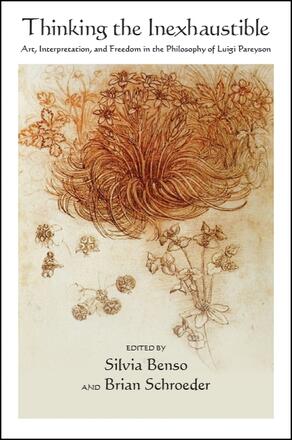
Thinking the Inexhaustible
Art, Interpretation, and Freedom in the Philosophy of Luigi Pareyson
Alternative formats available from:
Essays address the major themes of Pareyson’s hermeneutic philosophy in the context of his existentialist approach to personhood.
Description
What if the inexhaustible were the only mode of self-revelation of truth? The question of the inexhaustibility of truth, and its relation to being and interpretation, is the challenge posed by the philosophy of the prominent Italian thinker Luigi Pareyson (1918–1991). Art, the interpretation of truth, and the theory of being as the ontology of both inexhaustibility and freedom constitute the main themes of Pareyson's distinctive form of philosophical hermeneutics, which develops also on the basis of another fundamental concept, that of personhood understood in the radically existentialist sense of the human being. In Thinking the Inexhaustible, Silvia Benso and Brian Schroeder bring together essays devoted to Pareyson's hermeneutic philosophy by important international scholars, including well-known Italian thinkers Umberto Eco and Gianni Vattimo, who were both students of Pareyson. Pareyson's philosophy of inexhaustibility unfolds in conversation with major figures in Western intellectual history—from Croce to Valéry, Dostoevsky, and Berdyaev; from Kant to Fichte, Hegel, and German romanticism; and from Pascal to Schelling, Kierkegaard, Marcel, Jaspers, and Heidegger.
Silvia Benso is Professor of Philosophy at the Rochester Institute of Technology. Brian Schroeder is Professor of Philosophy at the Rochester Institute of Technology.
Reviews
"This book introduces, in a way that has not been done before, the central ideas from Pareyson's long philosophical career. It opens up pathways for further critical analysis and fills in a neglected history within the broader scope of continental philosophy." — James Risser, editor of Heidegger toward the Turn: Essays on the Work of the 1930s